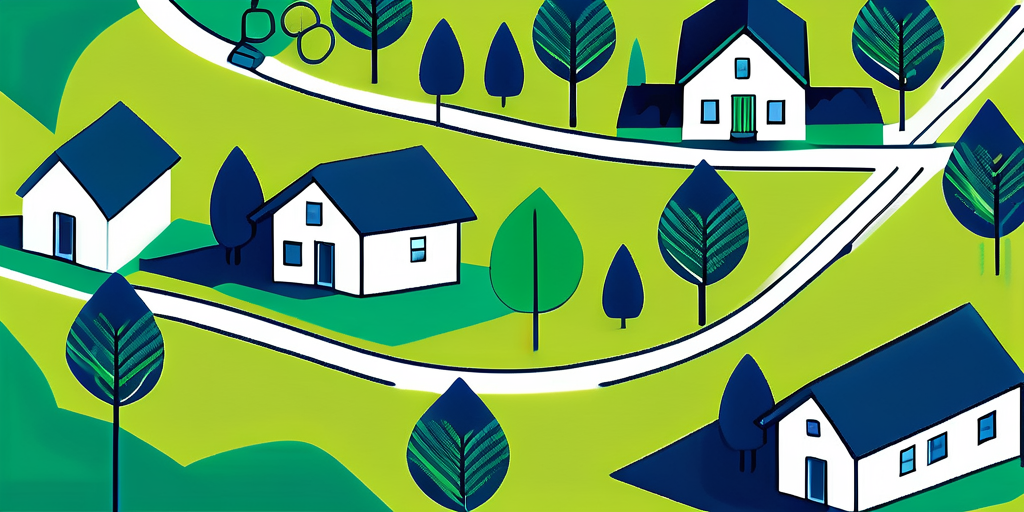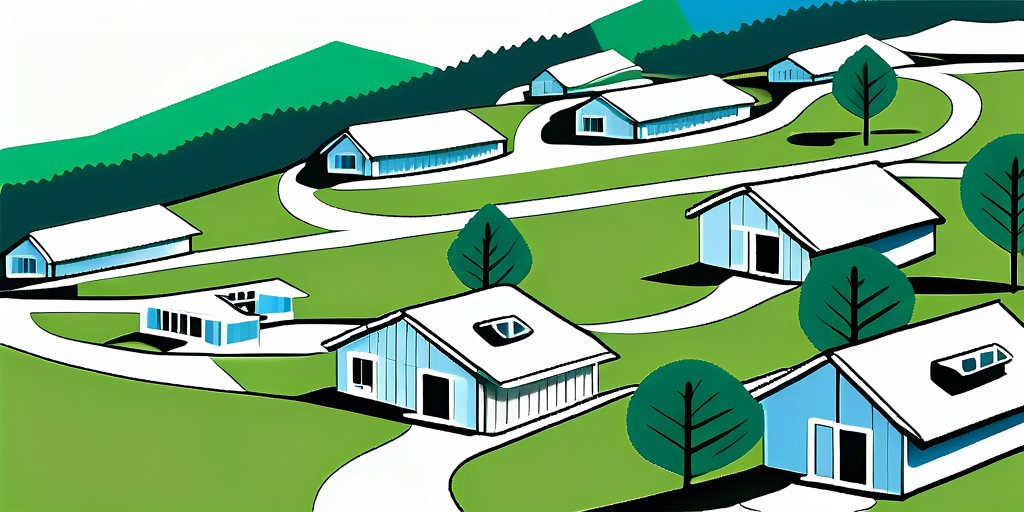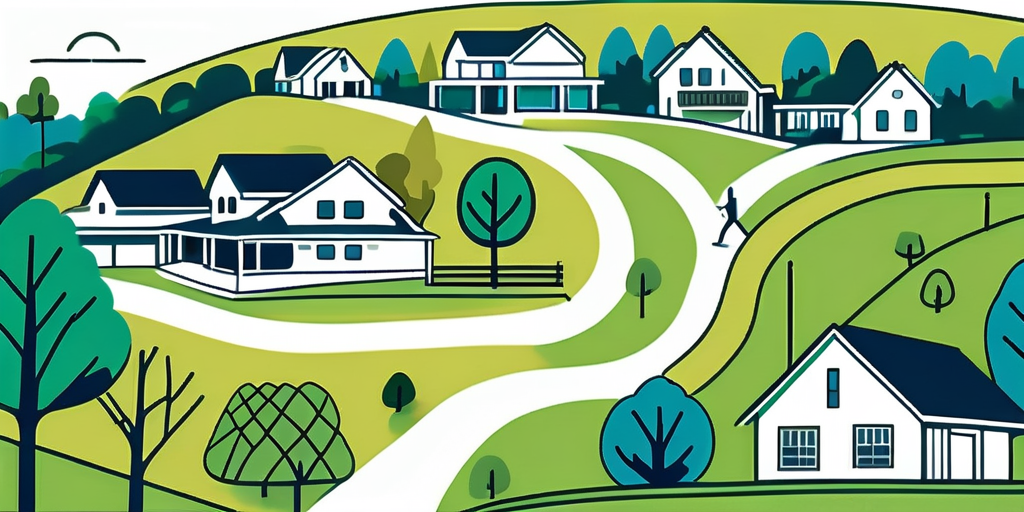
When considering a building project, one of the most critical elements to evaluate is the location. This is particularly true for Tennessee National, where the natural beauty and diverse geography create a unique opportunity for development. In this article, we will delve into various aspects of location that are vital to consider when planning your construction project in this beautiful region.
Tennessee National is a stunning area characterized by its rolling hills, forests, and access to breathtaking waterways. Understanding the geography of this area is essential for successful planning and development. The region's diverse ecosystems, which include wetlands, hardwood forests, and riverine habitats, contribute to its rich biodiversity. This variety not only enhances the natural beauty of Tennessee National but also plays a crucial role in maintaining ecological balance. Local flora and fauna thrive in these environments, making it a prime location for nature enthusiasts and conservation efforts alike.
The topography of Tennessee National plays a significant role in construction. For instance, the elevation and incline of your building site can affect drainage, accessibility, and even structural integrity. Sites on higher ground may offer scenic views, but they could also face challenges like erosion and difficulty in transportation of materials. Understanding the slope of the land is vital, as steeper inclines may require additional engineering solutions to ensure safety and stability.
Moreover, understanding the natural contours of the land will help you optimize your building layout, reducing costs and enhancing functionality. Proper site analysis, which includes studying the topography, is essential in crafting a solid foundation for any project. Additionally, incorporating the natural landscape into your design can create a more harmonious relationship between the built environment and the surrounding nature, promoting a sense of place that resonates with residents and visitors alike.
The climate in Tennessee National can vary, from hot summers to cold winters. This fluctuation necessitates careful planning in terms of building materials, insulation, and energy efficiency. Properties in this area may benefit from materials that provide better thermal insulation, which can result in lower energy costs over time. Furthermore, the choice of roofing materials and window placements can significantly impact energy consumption, making it essential to consider the sun's path and prevailing winds during the design phase.
Additionally, understanding seasonal weather patterns, such as heavy rain or occasional snow, will allow you to design structures that can withstand these elements. Implementing climate-sensitive designs can not only enhance the longevity of your building but also contribute to a more sustainable living space. Rainwater harvesting systems and green roofs can further mitigate the impact of heavy rainfall, while strategic landscaping can help manage snow accumulation during winter months. By prioritizing climate resilience in your building plans, you can create a more durable and environmentally friendly structure that thrives in Tennessee National's unique climate conditions.
A comprehensive assessment of the local infrastructure is critical for any construction project. It encompasses everything from roads and public transportation to utilities and internet connectivity.
Good accessibility is a cornerstone of successful property development. Tennessee National benefits from well-maintained roads and highways that facilitate easy access to nearby cities and amenities. When selecting a site, consider the distance to major routes and transportation hubs. This will not only affect daily commutes for residents but also the delivery of materials during the construction phase.
Furthermore, evaluating public transportation options can provide insights into how easily residents can navigate the area without a personal vehicle. Accessibility increases the appeal of the property, making it a more attractive investment for potential buyers or renters. The presence of bus routes, train stations, or even bike lanes can significantly enhance the livability of a community, encouraging a more active lifestyle and reducing reliance on cars. This is particularly important in today’s eco-conscious market, where sustainability is a growing priority for many homebuyers.
Another crucial factor is the proximity to essential services such as grocery stores, healthcare facilities, schools, and recreational areas. Living in a location that is near these services enhances the quality of life for residents. Families with children will specifically look for areas near high-quality schools and childcare options.
Additionally, consider the importance of having medical facilities close at hand. In emergencies, fast access to healthcare can be vital. Understanding the availability and quality of these services in Tennessee National will guide your construction decision-making process effectively. Moreover, the presence of parks and recreational facilities can greatly influence the desirability of a location. Access to green spaces not only promotes physical activity but also fosters a sense of community among residents. Local amenities such as gyms, community centers, and libraries can further enhance the lifestyle offerings, making the area more appealing to a diverse demographic, from young professionals to retirees.
The location of your building significantly influences its property value. A prime location can yield substantial financial returns in the long run.

Tennessee National is renowned for its picturesque landscapes and tranquil environment. Properties that feature great views or are adjacent to parks and natural reserves tend to have higher property values. Such locations appeal not only to homeowners seeking serene living spaces but also to investors aiming for profitable returns.
Moreover, the aesthetic surrounding areas can impact the overall desirability. Aspects like landscaping, the presence of wildlife, and public engagement in maintaining these spaces can further enhance the value of your investment. The community's commitment to preserving green spaces and promoting biodiversity can create a sense of pride among residents, fostering a strong neighborhood identity that attracts potential buyers. Properties that boast proximity to vibrant ecosystems or scenic trails often command a premium, as they offer an enriched lifestyle that blends nature with modern living.
Monitoring future development plans in Tennessee National is paramount. Local government and planning commissions often have long-term goals for the area, which can dramatically influence property values. If your location is slated for commercial development or improved infrastructure, it may significantly increase the appeal and value of your property over time.
On the other hand, if there are plans for heavy construction or developments that may disrupt the tranquility of the area, it could adversely affect property values. Engage with local constituents and keep abreast of community news to make informed decisions. Additionally, understanding the types of businesses that may move into the area can provide insight into the future demographic shifts and economic trends. For instance, the introduction of boutique shops, cafes, or cultural centers can enhance the neighborhood's charm, making it more attractive to a diverse range of buyers. Conversely, the establishment of industrial facilities could lead to increased traffic and noise, which may deter potential homeowners looking for a peaceful retreat. Keeping a pulse on these developments allows property owners to strategically position their investments for maximum return.
Building in an environmentally conscious manner is not just a trend; it is a necessity. In Tennessee National, this is especially important given the area's natural beauty and delicate ecosystems. The region is home to diverse wildlife and unique plant species, making it essential for builders to consider their impact on these vital resources. By prioritizing eco-friendly practices, developers can help preserve the natural landscape and contribute to the overall health of the environment.

Incorporating sustainable building practices not only benefits the environment but also appeals to eco-conscious buyers. Methods like using locally sourced materials, implementing energy-efficient designs, and utilizing sustainable technologies like solar panels can greatly enhance your property’s value. Additionally, opting for recycled or reclaimed materials can reduce waste and lower the carbon footprint of the building process. This approach not only conserves resources but also adds a unique character to the structure, making it stand out in the market.
Furthermore, creating green spaces around your properties—such as gardens or landscaped areas—can further promote ecological balance while providing recreational space for residents. These green areas can serve as habitats for local wildlife, contributing to biodiversity. Incorporating native plants into landscaping not only requires less water and maintenance but also supports local ecosystems. Sustainable building is an investment that pays off both socially and economically, fostering a sense of community and well-being among residents.
Before you begin construction, understanding and complying with local environmental regulations is crucial. Tennessee National may have specific laws designed to protect natural habitats and waterways. These regulations often include guidelines on stormwater management, erosion control, and the preservation of existing vegetation, which are vital for maintaining the integrity of the local environment.
Familiarizing yourself with these regulations can help you avoid costly fines and delays. Consulting with environmental experts or local authorities can provide valuable insights into necessary permits and practices to ensure a responsible and legally compliant construction project. Engaging with the community during the planning stages can also foster goodwill and support for your project, as residents will appreciate your commitment to protecting their natural surroundings. By taking these steps, builders can create a harmonious balance between development and conservation, ensuring that Tennessee National remains a beautiful and sustainable place to live.
The community dynamics and lifestyle factors also weigh heavily on the decision-making process in terms of location. Tennessee National is known for its tight-knit communities and shared values, where residents often come together to celebrate local traditions and support one another. This sense of belonging fosters a vibrant atmosphere, making it an ideal place for families and individuals seeking a supportive environment.

Understanding the characteristics of various neighborhoods can help determine the best fit for your project. From bustling community centers to quiet retreats, each neighborhood offers unique features that cater to different lifestyles. For instance, some areas may be characterized by historic homes with charming architecture, while others might showcase modern developments with contemporary designs. This diversity allows potential homeowners to choose a neighborhood that resonates with their personal taste and lifestyle preferences.
It is important to analyze factors such as safety, community engagement, and local events. Establishing a connection with the surrounding residents can lead to fruitful relationships and foster a welcoming environment for future homeowners. Engaging in neighborhood associations or attending town hall meetings can provide valuable insights into community initiatives and upcoming projects, further enhancing the sense of community involvement.
Lastly, consider the recreational opportunities available in Tennessee National. The area boasts numerous parks, trails, and waterways that promote an outdoor lifestyle. Properties near these recreational amenities are often highly sought after, making them more attractive to both buyers and renters. Families can enjoy weekend picnics at local parks, while fitness enthusiasts can take advantage of well-maintained trails for hiking, biking, or jogging, creating a healthy and active community.
Encouraging an active lifestyle within your community can enhance quality of life and create a strong appeal for potential residents. Being situated near areas rich in recreational opportunities can be a significant selling point for your property. Additionally, local sports leagues and recreational programs offer residents the chance to participate in team activities, fostering camaraderie and a sense of belonging. The availability of such amenities not only enriches the lives of current residents but also attracts newcomers looking for a community that values health and wellness.